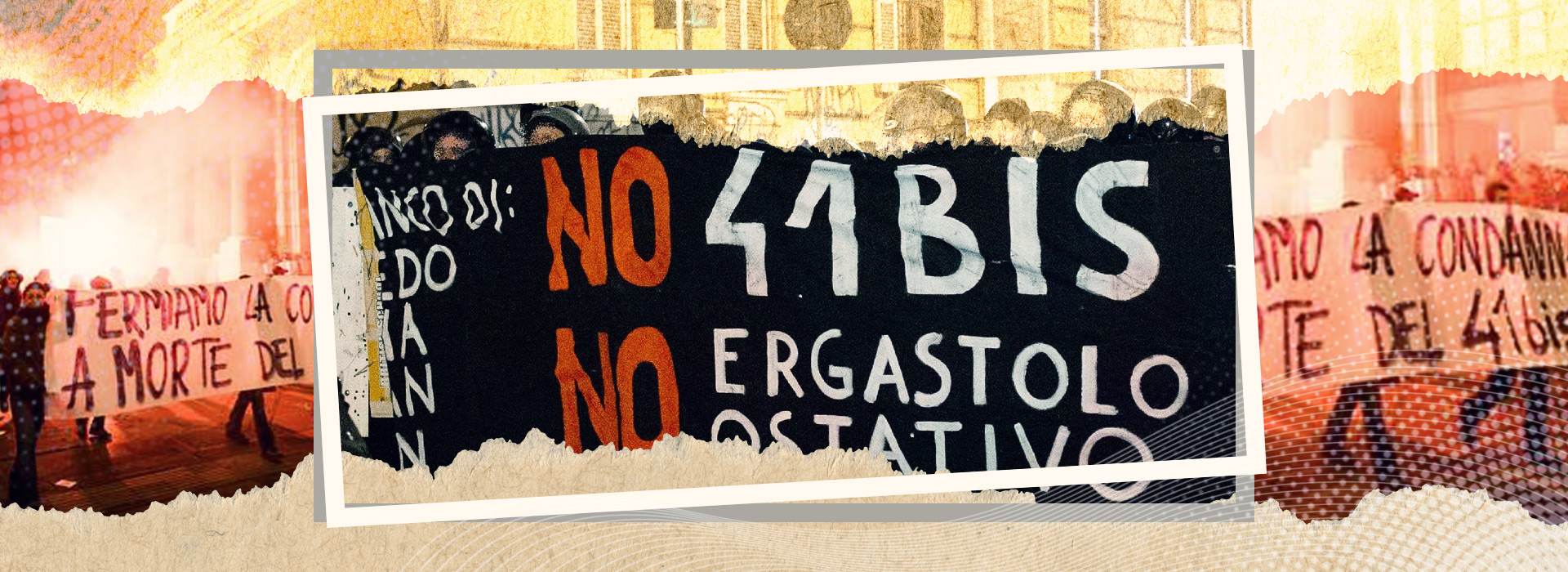Two totally different personalities such as Michele Serra and Lirio Abbate commented on the drama of Alfredo Cospito who risks dying for a principle in Repubblica. Serra thanked Giovanni Donzelli of Fratelli d’Italia for his ramshackle speech in the Chamber (which well illustrates the human misery of a certain right, the one that Indro Montanelli horrified rejected) for clearly showing the difference between the left and the reactionaries despite everything.
Reactionaries love to wield the rope while the left can only be on the side of the hanged, the outcasts, those that Frantz Fanon called “the damned of the earth”.
The second address is that expressed, in the same Serra newspaper, by one of the militant anti-mafia singers in effective permanent service: the former director of L’Espresso Lirio Abbate, who in his article reduces Cospito to a conscious puppet of the mafia for the abolition of the so-called “hard prison”.
After all, even on this occasion, the Democratic Party is unable to get out of the paralysis and embarrassment well expressed by the pouting face of Andrea Orlando in front of Brunella Bolloli’s question: «Why don’t you have the courage to ask for the abolition of the 41 bis?», to which the former Minister of Justice of the Renzi government recalled with ill-concealed pride that he had inflicted it and not revoked it on a dying Bernardo Provenzano, with consequent condemnation by the European Court of Human Rights. Bolloli gets the point.
There was also the enlightened thought of Piercamillo Davigo former magistrate today one of the many defendants of the country who wanted to turn inside out, according to which the model to follow is that of Mrs. Thatcher who remained indifferent to the hunger strike of the Irish prisoners of the ‘IRA, then let it go out. The not negligible difference that Davigo obviously does not grasp is that a bloody and open war was going on at the time.
The truth is that ours is the pleasant country of many Donzelli, people who think they can solve complex problems by making guttural sounds, beating their chests and using the gallows, jail and soon the truncheon. And then many, many, interceptions against everyone, as this story demonstrates.
There are two problems that should be analyzed by reasoning as civilized people and not as primitives.
The first: is the 41 bis still needed? Introduced in 1986 and extended to mafia crimes, thirty years ago, with the entire Corleonese dome on the loose and Italy devastated by bombs and ambushes, it continues to persist even today that the last boss of that tragic era has been arrested and led to die in prison (at 41 bis of course).
The simple question horrifies the mourners of the anti-mafia from the various institutional offices rightly conquered after years of alarms and investigations gone bad: from the Borsellino massacre, to the “negotiation”, to Mafia Capitale.
It is not a question of guaranteeing luxury holidays: if the current miserable condition of Italian prisoners is not enough, there are already prisons and maximum security regimes reserved for the perpetrators of mafia and terrorism crimes.
The point is simple: we must begin to discuss lucidly on the fact that a system of derogation from elementary constitutional rights and indicated from the outset as provisional must be perpetuated indefinitely. I remind you that basic living conditions such as contact with family members, reading books and magazines, socializing and recovery programs are suspended for those subjected to the 41 bis regime. Only an intervention by the Consulta lifted the ban on free meetings with lawyers.
The question is: thirty years after the Capaci massacre is it still necessary? Is it possible to have statistics that demonstrate some correlation between the adoption of the special regime of 41 bis and a decrease in organized crime and terrorism crimes?
The hypocritically unsaid is that in reality the true function of such a harsh and segregating system is to induce the prisoner weakened by his conditions to collaborate.
Giovanni Falcone and Carlo Alberto Dalla Chiesa didn’t need it, at the time, to get Tommaso Buscetta and Patrizio Peci talking. For this reason it would be useful to have updated statistics on this too, to verify how many collaborations there have been for the 41 bis and whether the regime of ordinary limitation to alternative measures to prison has not been more incisive.
Recently, the intervention of the Constitutional Court has removed the taboo that forbade mafiosi and terrorists to be able to enjoy social recovery measures (semi-release, home detention, etc.), albeit introducing a series of requirements so stringent as to make the goal extremely difficult. In the light of this decision, does it make sense to extend an exceptional regime of detention also taking into account the risk of being sanctioned again by the European Court after the Provenzano case?
Finally, the second horn of the question: from Donzelli’s vulgar intervention there was confirmation of the extreme danger of the use of preventive measures in the hands of the extreme right. With incredible lightness, the close collaborator of the Prime Minister Giorgia Meloni read the contents of confidential interceptions arranged inside the prison to control the prisoners.
This newspaper had already sounded the alarm on the nebula of this type of tapping on which the Meloni government has decided to operate closer control with the favorable opinion of the current Minister of Justice Carlo Nordio who would like to limit the tappings to be used in trials, but would like to expand the “security” ones intended for government use only.
Ecco: the Del Mastro-Donzelli affair, the two cronies exchanging confidential material makes us understand what certain anti-mafia proclamations can hide: the dangerous narrowing of everyone’s spaces of freedom. Once again, the right of the outcasts is a question that involves the whole of democratic society.
(yes Linkiesta from 3/2/2023)
